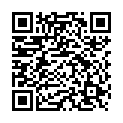|
|
|
| Module code: E2427 |
|
|
2SU (2 hours per week) |
|
2 |
| Semester: 4 or 6 |
| Mandatory course: no |
Language of instruction:
German |
Assessment:
Written exam
[updated 19.02.2018]
|
EE-K2-525 (P200-0021) Energy system technology / Renewable energies, Bachelor, ASPO 01.10.2012
, semester 6, optional course
EE-K2-525 (P200-0021) Energy system technology / Renewable energies, Bachelor, ASPO 01.04.2015
, semester 6, optional course, course inactive since 14.03.2018
E2427 (P200-0021) Electrical Engineering and Information Technology, Bachelor, ASPO 01.10.2018
, optional course, general subject
KI585 Computer Science and Communication Systems, Bachelor, ASPO 01.10.2014
, semester 6, optional course, non-technical
KIB-RFA2 (P200-0021) Computer Science and Communication Systems, Bachelor, ASPO 01.10.2021
, semester 6, optional course, non-technical
KIB-RFA2 (P200-0021) Computer Science and Communication Systems, Bachelor, ASPO 01.10.2022
, semester 6, optional course, non-technical
MAB.4.2.1.22 (P200-0021) Mechanical and Process Engineering, Bachelor, ASPO 01.10.2013
, semester 6, optional course
MAM.2.1.1.21 Engineering and Management, Master, ASPO 01.10.2013
, optional course, general subject, course inactive since 06.10.2020
MST.RA2 Mechatronics and Sensor Technology, Bachelor, ASPO 01.10.2012
, semester 6, optional course, non-technical, course inactive since 14.03.2018
MST.RA2 Mechatronics and Sensor Technology, Bachelor, ASPO 01.10.2019
, semester 6, optional course, non-technical, course inactive since 14.03.2018
MST.RA2 Mechatronics and Sensor Technology, Bachelor, ASPO 01.10.2020
, semester 6, optional course, non-technical, course inactive since 14.03.2018
PIBWN34 Applied Informatics, Bachelor, ASPO 01.10.2011
, semester 6, optional course, not informatics specific
PIB-RFA2 (P200-0021) Applied Informatics, Bachelor, ASPO 01.10.2022
, semester 4, optional course, not informatics specific
PIB-RFA2 (P200-0021) Applied Informatics, Bachelor, SO 01.10.2026
, semester 4, optional course, not informatics specific
|
30 class hours (= 22.5 clock hours) over a 15-week period.
The total student study time is 60 hours (equivalent to 2 ECTS credits).
There are therefore 37.5 hours available for class preparation and follow-up work and exam preparation.
|
Recommended prerequisites (modules):
None.
|
Recommended as prerequisite for:
|
Module coordinator:
Dr. Julia Frisch |
Lecturer: Dr. Julia Frisch
[updated 31.03.2020]
|
Learning outcomes:
The modules _Russian for Beginners 1_ and _Russian for Beginners 2_ are based on one another. In the course of the two modules, participants will first reach proficiency level A1 and then advance to level A2 of the European Framework of Reference for Languages. The course _Russian for Beginners 2_ is aimed at learners with basic knowledge of the Russian language at level A1 of the European Reference Framework or the module _Russian for Beginners 1_.
The goal of the course is to provide students with basic knowledge of the Russian language, which will enable them to communicate in general and professional situations, both orally and in writing. To do so, all four skills (speaking, listening comprehension, reading and writing) will be trained equally. We will focus on oral communication in order to develop communicative competence in work-related situations, especially through role playing and the use of dialogues. Important grammatical structures will be taught in order to support and supplement the content of the course.
During the course, intercultural aspects will also be addressed so that students develop an awareness
of cultural specificities and are able to act and communicate appropriately and competently in the respective situations.
[updated 19.02.2018]
|
Module content:
In the course _Russian for Beginners 2_ selected lessons from the textbook _Otlitschno 2_ will be worked on.
Work
_ Organizing daily and weekly schedules
_ Times, opening hours
_ Making business calls
_ Writing memos
The professional world
_ Writing and responding to invitations
_ Making hotel reservations per telephone/e-mail
_ Developing an event program for business partners
_ Describing how a company is structured
_ Naming tasks and responsibilities
Professional training and experience
_ Creating a resume
_ Reading and understanding job advertisements
Intercultural competence
Basic knowledge about Russian culture, history and society
In addition, basic grammatical structures (e. g. numbers, time and date, use and declination of nouns, adjectives and personal pronouns, prepositions, verb conjugation, sentence structure) will be taught.
Students are expected to work on and expand their basic vocabulary independently.
[updated 19.02.2018]
|
Teaching methods/Media:
Teaching and learning materials (print media, slides, audio-visual teaching materials) compiled specifically for the learning group and recommended podcasts at www.russlandjounal.de
[updated 19.02.2018]
|
Recommended or required reading:
The course is based on the following textbook and will be supplemented by the following:
_Otlitschno 2_ Lehrbuch ISBN: 978-3-19-0044778-8 und Arbeitsbuch ISBN: 978-3-19-014478-5
[updated 19.02.2018]
|


